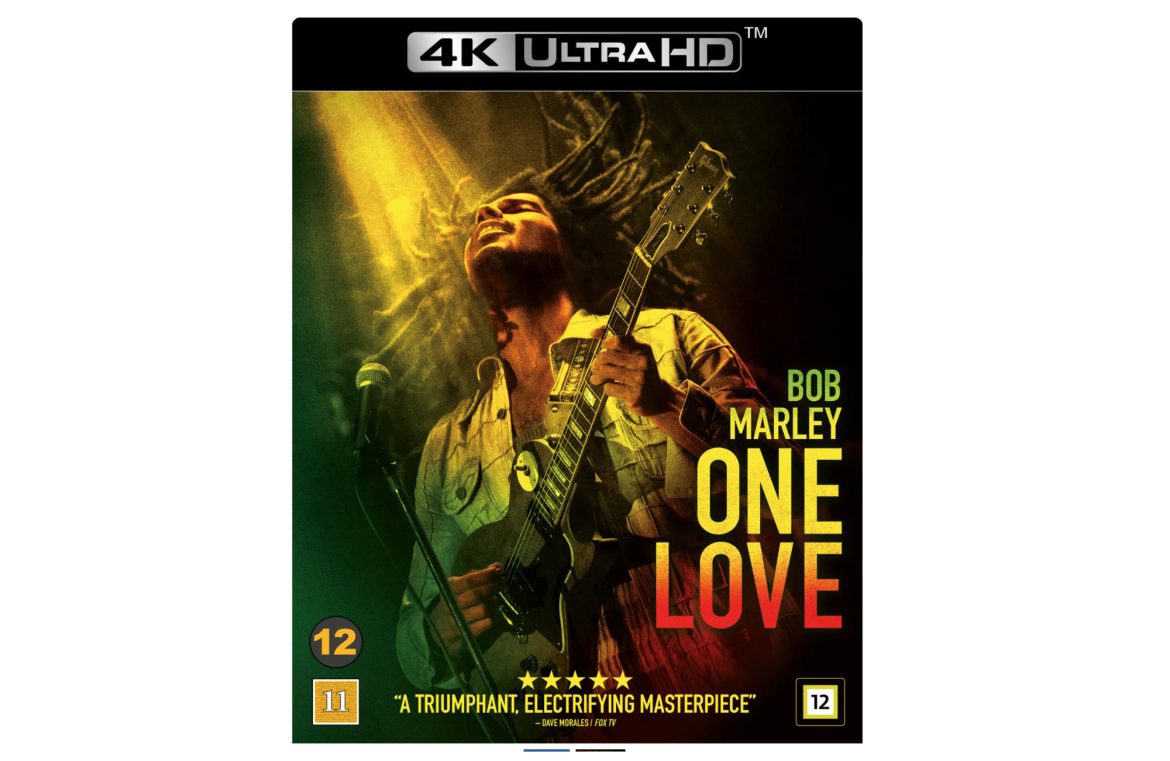TL;DR
Bob Marley: One Love tackles the 1976 Smile Jamaica concert and an assassination attempt, aiming to show Marley's quest for peace. While the film focuses on a specific, compelling period, it unfortunately sanitizes Marley's life, lacks emotional depth in key moments, and the lead performance feels more like imitation than embodiment. However, the stunning UHD presentation with vibrant visuals and immersive Dolby Atmos sound significantly elevates the experience, and bonus features add value. This biopic has potential but ultimately feels underwhelming, though the technical aspects shine. Discover if the dazzling visuals and sound can salvage the story – read the full review to decide!
Bob Marley: One Love chronicles a pivotal and turbulent period in the life of the iconic musician, Bob Marley. Set against the backdrop of escalating political unrest in Jamaica in 1976, the film depicts Marley’s efforts to promote peace through the Smile Jamaica concert. The narrative follows the attempted assassination of Marley, his wife Rita, and members of his band in the lead-up to the event, marking a critical juncture in his personal and professional journey.
While not a dedicated follower of Bob Marley’s music, I possess a general understanding of his cultural impact and the significant events of his relatively short life. Marley’s untimely death from cancer in 1981, at the age of 36, cemented his legacy, with his music continuing to resonate with audiences worldwide.
Produced by four of Marley’s relatives, Bob Marley: One Love, unfortunately, suffers from a somewhat sanitized portrayal. Biopics often face the challenge of balancing factual accuracy with compelling storytelling, and this film struggles to delve into the complexities of its subject. The limited exploration of Marley’s less admirable qualities results in a narrative that feels somewhat superficial. However, the film’s focused approach, concentrating on a specific period rather than attempting a comprehensive overview of his entire life, is a welcome departure from the often-sketchy nature of broader biographical films, such as Whitney Houston: I Wanna Dance With Somebody.
Bob Marley’s life, particularly this era, presents ample opportunity for a captivating cinematic exploration of a remarkable artist and his extraordinary story. However, One Love often feels underwhelming and contrived. The assassination attempt, occurring early in the film, lacks sufficient context and emotional weight. The rapid succession of events may leave viewers unfamiliar with the historical background feeling disoriented and detached. The severity of the attack, including the multiple gunshot wounds sustained by one of Marley’s friends and the head wound inflicted on Rita Marley, is not adequately conveyed, diminishing the impact of the scene.
The film’s most compelling moments are arguably found in the end credits, featuring archival footage of Bob Marley and events that could have enriched the film’s climax. In particular, the historic occasion when Marley brought opposing political figures together on stage to the enthusiastic approval of the audience, would have provided a more impactful conclusion. While the acting performances are generally competent, Kingsley Ben-Adir’s portrayal of Bob Marley feels somewhat unconvincing. Despite resembling Marley physically, his performance lacks authenticity, creating a sense of artificiality. In contrast to Rami Malek’s transformative performance in Bohemian Rhapsody, where he embodied the essence of Freddie Mercury despite a limited physical resemblance, Ben-Adir’s portrayal feels more like an imitation.
A significant strength of Bob Marley: One Love lies in its exceptional UHD edition, which delivers outstanding visual fidelity in 2160p with HDR10 and Dolby Vision support. The deep blacks and vibrant highlights create a visually striking contrast, while the consistent bitrate of 51.67 Mbps ensures smooth playback, even during fast-paced scenes. The concert sequences exhibit remarkable depth and detail. The Dolby Atmos sound design is equally impressive, providing an immersive audio experience, particularly during the musical performances, replicating the atmosphere of a live concert.
Furthermore, the inclusion of approximately one hour of bonus material, featuring several well-produced and informative documentaries, adds considerable value to the disc.
In conclusion, Bob Marley: One Love, while possessing the potential to be a profoundly moving and impactful film, ultimately falls short in several areas. However, the impressive UHD edition elevates the overall viewing experience, resulting in a final rating that lands squarely in the middle ground.
SF Studios provided the review copy for this assessment. The provision of review materials does not influence our editorial independence. Our reviews are conducted with a focus on providing objective and unbiased information to our readers and consumers.
